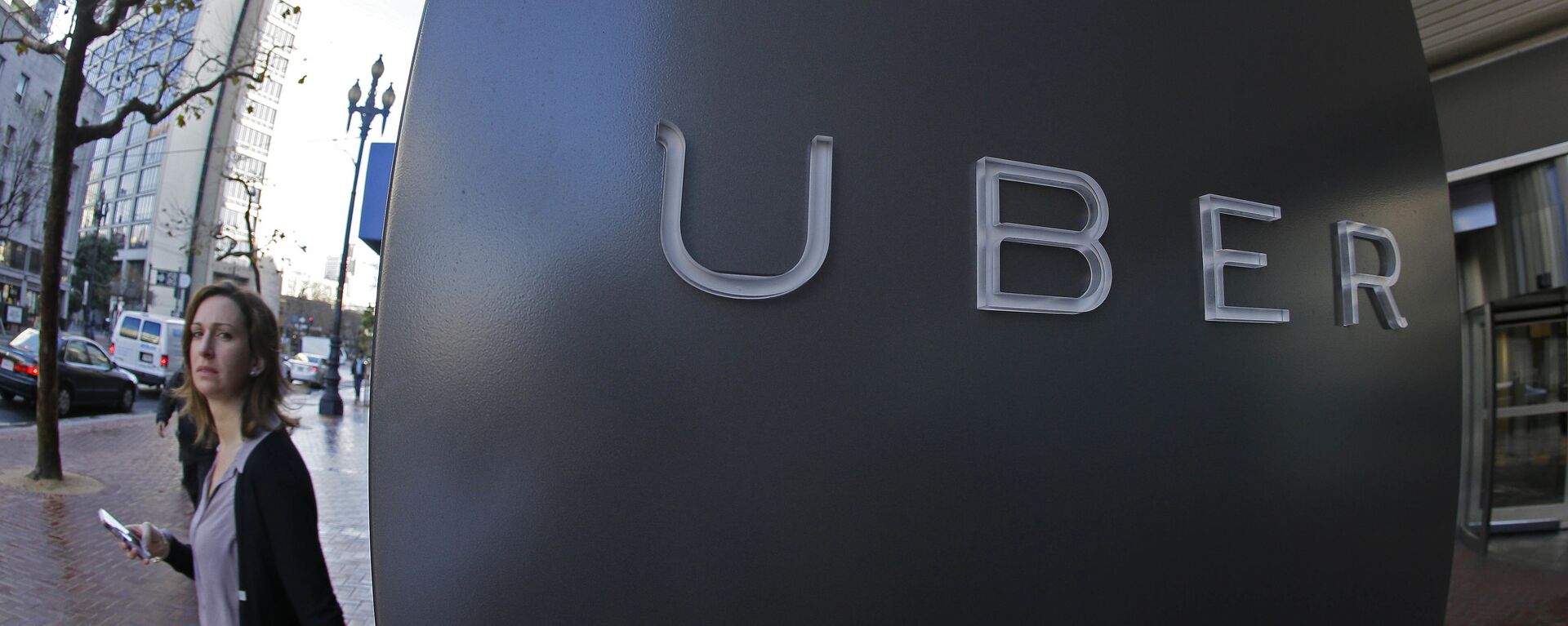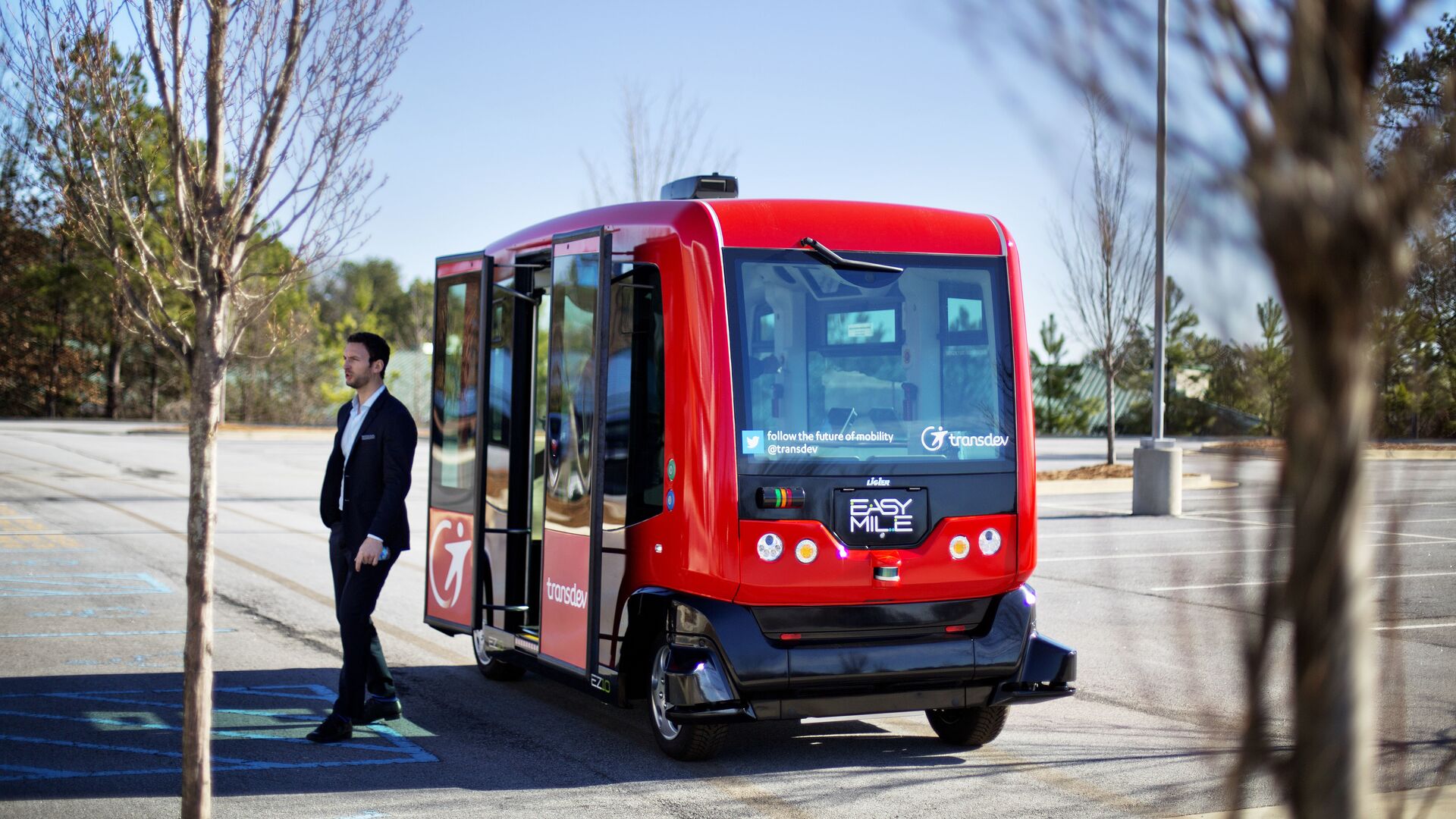https://sputnikglobe.com/20220820/uk-plans-to-permit-partially-self-driving-vehicles-in-2023-fully-autonomous-transport-in-2025-1099799333.html
UK Plans to Permit Partially Self-Driving Vehicles in 2023, Fully Autonomous Transport in 2025
UK Plans to Permit Partially Self-Driving Vehicles in 2023, Fully Autonomous Transport in 2025
Sputnik International
Several global companies continue to develop self-driving vehicles with safety being the main focus. At the same time, British legislators are actively working... 20.08.2022, Sputnik International
2022-08-20T11:20+0000
2022-08-20T11:20+0000
2023-05-28T15:20+0000
science & tech
self-driving vehicles
self-driving car
united kingdom (uk)
https://cdn1.img.sputnikglobe.com/img/105136/05/1051360503_0:528:5568:3660_1920x0_80_0_0_05796c25a8b07b3a8f26a9ea06a7a8f9.jpg
The UK will be gradually phasing in self-driving vehicles on its roads over the next few years, Transport Secretary Grant Shapps has announced, adding that the proposals for future legislation have already been drawn up by the Law Commission.Shapps praised the introduction of self-driving features and fully autonomous vehicles as a motorist revolution that will boost road safety and have significant economic effects.Shapps likewise stressed that Whitehall wants the UK to be at the forefront of the new technology and will be investing £100 million to this ends. Roughly a third of this amount will be dedicated to research into safety, while £20 million will be allocated to fund commercial self-driving services.What the UK’s Self-Driving Vehicle Rollout Will Look LikeAccording to the plan unveiled by Shapps, the use of limited self-driving features will be allowed on the UK roads as early as next year. Drivers will still be required to hold a driving license.The list of self-driving features that will be allowed in 2023 includes adaptive cruise control ̶ in which a car can speed up or slow down to maintain its distance between itself and the car in front, as well as a desired set speed. Other technology that falls under this description is automatic lane-centering steering, in which a car corrects its course to remain in the center of a marked lane.Fully-autonomous self-driving vehicles, which includes cars and other vehicles, will be allowed on UK roads in 2025, Shapps said. Some, such as public transport and automated delivery vehicles, won't require passengers to hold a driving license since they won't rely on a person's driving skills.The UK government has apparently managed to devise a legal framework for one of the most contentious issues involving self-driving vehicles – accident responsibility. As per Whitehall's plans, “drivers” of autonomous cars will not carry responsibility for accidents that happen while their vehicle is in self-driving mode.Instead, the manufacturer or the developer will be held liable for accidents, as well as other violations – such as running red lights, speeding and dangerous driving. The “drivers” will still be responsible for their car's maintenance and parking, as well as insurance and ensuring that underage passengers use seatbelts. They will also be mandated to report incidents.It is unclear at the moment whether the UK will impose certain requirements for self-driving software in terms of the choice that the program may have to make in certain circumstances between saving passenger lives, pedestrian lives, or the lives of passengers in another car. The issue has long been a stumbling block not just for legislators, but also for the manufacturers of such vehicles around the world.
https://sputnikglobe.com/20201208/uber-pays-tech-startup-to-take-over-troublesome-self-driving-car-effort-1081389699.html
united kingdom (uk)
Sputnik International
feedback@sputniknews.com
+74956456601
MIA „Rossiya Segodnya“
2022
Tim Korso
https://cdn1.img.sputnikglobe.com/img/07e6/03/0d/1093831826_0:0:216:216_100x100_80_0_0_e3f43a960af0c6c99f7eb8ccbf5f812c.jpg
Tim Korso
https://cdn1.img.sputnikglobe.com/img/07e6/03/0d/1093831826_0:0:216:216_100x100_80_0_0_e3f43a960af0c6c99f7eb8ccbf5f812c.jpg
News
en_EN
Sputnik International
feedback@sputniknews.com
+74956456601
MIA „Rossiya Segodnya“
Sputnik International
feedback@sputniknews.com
+74956456601
MIA „Rossiya Segodnya“
Tim Korso
https://cdn1.img.sputnikglobe.com/img/07e6/03/0d/1093831826_0:0:216:216_100x100_80_0_0_e3f43a960af0c6c99f7eb8ccbf5f812c.jpg
science & tech, self-driving vehicles, self-driving car, united kingdom (uk)
science & tech, self-driving vehicles, self-driving car, united kingdom (uk)
UK Plans to Permit Partially Self-Driving Vehicles in 2023, Fully Autonomous Transport in 2025
11:20 GMT 20.08.2022 (Updated: 15:20 GMT 28.05.2023) Several global companies continue to develop self-driving vehicles with safety being the main focus. At the same time, British legislators are actively working to regulate their use with the issue of responsibility for accidents proving a major stumbling block.
The UK will be gradually phasing in self-driving vehicles on its roads over the next few years, Transport Secretary Grant Shapps has announced, adding that the proposals for future legislation have already been drawn up by the Law Commission.
Shapps praised the introduction of self-driving features and fully autonomous vehicles as a motorist revolution that will boost road safety and have significant economic effects.
"The benefits of self-driving vehicles have the potential to be huge. Not only can they improve people’s access to education and other vital services, but the industry itself can create tens of thousands of job opportunities throughout the country. Most importantly, they’re expected to make our roads safer by reducing the dangers of driver error in road collisions," the secretary said.
Shapps likewise stressed that Whitehall wants the UK to be at the forefront of the new technology and will be investing £100 million to this ends. Roughly a third of this amount will be dedicated to research into safety, while £20 million will be allocated to fund commercial self-driving services.
What the UK’s Self-Driving Vehicle Rollout Will Look Like
According to the plan unveiled by Shapps, the use of limited
self-driving features will be allowed on the UK roads as early as next year. Drivers will still be required to hold a driving license.
The list of self-driving features that will be allowed in 2023 includes adaptive cruise control ̶ in which a car can speed up or slow down to maintain its distance between itself and the car in front, as well as a desired set speed. Other technology that falls under this description is automatic lane-centering steering, in which a car corrects its course to remain in the center of a marked lane.
Fully-autonomous self-driving vehicles, which includes cars and other vehicles, will be allowed on UK roads in 2025, Shapps said. Some, such as public transport and automated delivery vehicles, won't require passengers to hold a driving license since they won't rely on a person's driving skills.
The UK government has apparently managed to devise a legal framework for one of the most contentious issues involving self-driving vehicles –
accident responsibility. As per Whitehall's plans, “drivers” of autonomous cars will not carry responsibility for accidents that happen while their vehicle is in self-driving mode.
Instead, the manufacturer or the developer will be held liable for accidents, as well as other violations – such as running red lights, speeding and dangerous driving. The “drivers” will still be responsible for their car's maintenance and parking, as well as insurance and ensuring that underage passengers use seatbelts. They will also be mandated to report incidents.

8 December 2020, 00:42 GMT
It is unclear at the moment whether the UK will impose certain requirements for self-driving software in terms of the choice that the program may have to make in certain circumstances between saving passenger lives, pedestrian lives, or the lives of passengers in another car. The issue has long been a stumbling block not just for legislators, but also for the manufacturers of such vehicles around the world.



